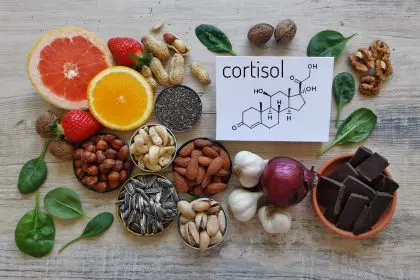High blood pressure, or hypertension, stands as a pervasive global health concern, affecting millions and serving as a pivotal risk factor for various health complications. Amid its wide-ranging effects, one of the lesser-known yet impactful consequences is its potential to trigger headaches, significantly disrupting daily life and well-being. Grasping the intricate connection between elevated blood pressure and the onset of headaches becomes pivotal in not just managing but also preventing these discomforting episodes. This link forms a critical aspect of health awareness, offering insights into the nuanced interplay between physiological factors and their effects on our daily wellness. Understanding how hypertension influences the occurrence of headaches serves as a vital step toward formulating effective strategies for both management and proactive prevention, ultimately aiming for a better quality of life for individuals grappling with these intertwined health concerns.
Headaches due to high blood pressure often manifest as pulsating sensations, typically felt at the back of the head or near the temples. These headaches may be more intense in the morning, potentially worsening upon sudden movements or exertion.
The correlation between elevated blood pressure and headaches is multifaceted. Increased pressure within blood vessels puts strain on the delicate network of vessels in the brain. Over time, this strain can lead to changes in vessel structure, making them more prone to spasms or leaks. The altered blood flow and vessel irregularities contribute to headache occurrences.
Moreover, hypertension can cause a condition called hypertensive crisis, marked by severely elevated blood pressure levels. During a hypertensive crisis, individuals may experience a sudden, severe headache, often accompanied by other symptoms like shortness of breath, nosebleeds or dizziness. These extreme spikes in blood pressure demand immediate medical attention to prevent life-threatening complications such as stroke or organ damage.
Several lifestyle factors exacerbate the relationship between high blood pressure and headaches. Unhealthy dietary habits, excessive salt intake, inadequate hydration and sedentary lifestyles can all contribute to elevated blood pressure levels, potentially worsening headache frequency and intensity.
Stress — another common trigger for both high blood pressure and headaches — plays a significant role in this connection. Chronic stress leads to the release of stress hormones, elevating blood pressure and, consequently, increasing the likelihood of headaches. Learning stress management techniques like meditation, yoga or mindfulness can aid in mitigating both hypertension and headaches.
Management strategies for preventing high blood pressure-related headaches encompass lifestyle modifications and medical interventions. Adopting a balanced diet rich in fruits, vegetables, lean proteins and whole grains while limiting sodium intake can positively impact blood pressure levels. Regular exercise, maintaining a healthy weight and avoiding tobacco and excessive alcohol consumption are pivotal in managing hypertension and reducing headache occurrences.
Additionally, adherence to prescribed medications, if recommended by a health care professional, remains crucial in controlling blood pressure and minimizing associated headaches. Antihypertensive medications, when taken as directed, help regulate blood pressure, subsequently alleviating the risk of headaches and associated complications.
Routine monitoring of blood pressure levels is essential for individuals prone to hypertension-related headaches. Regular checkups allow for timely intervention and adjustment of treatment plans, ensuring optimal blood pressure control and reducing the likelihood of recurrent headaches.
The intricate relationship between high blood pressure and headaches highlights the imperative need for proactive management strategies. Embracing a holistic approach, incorporating healthy lifestyle choices, stress management techniques and medical guidance, holds the key to mitigating hypertension’s impact on headache occurrence and severity. This multifaceted strategy empowers individuals to navigate the complexities of these interconnected health issues, aiming not only to alleviate headaches but also to enhance overall well-being.
Heightened awareness and timely intervention stand as fundamental pillars in this endeavor. Consistent efforts directed toward maintaining optimal blood pressure levels play a pivotal role in curbing the incidence of headaches associated with hypertension. By fostering a proactive attitude towards health, individuals can substantially reduce the disruptive impact of headaches stemming from elevated blood pressure, fostering a higher quality of life and a greater sense of wellness. Prioritizing these comprehensive measures not only aids in headache management but also contributes significantly to an individual’s holistic health journey.
This story was created using AI technology.













